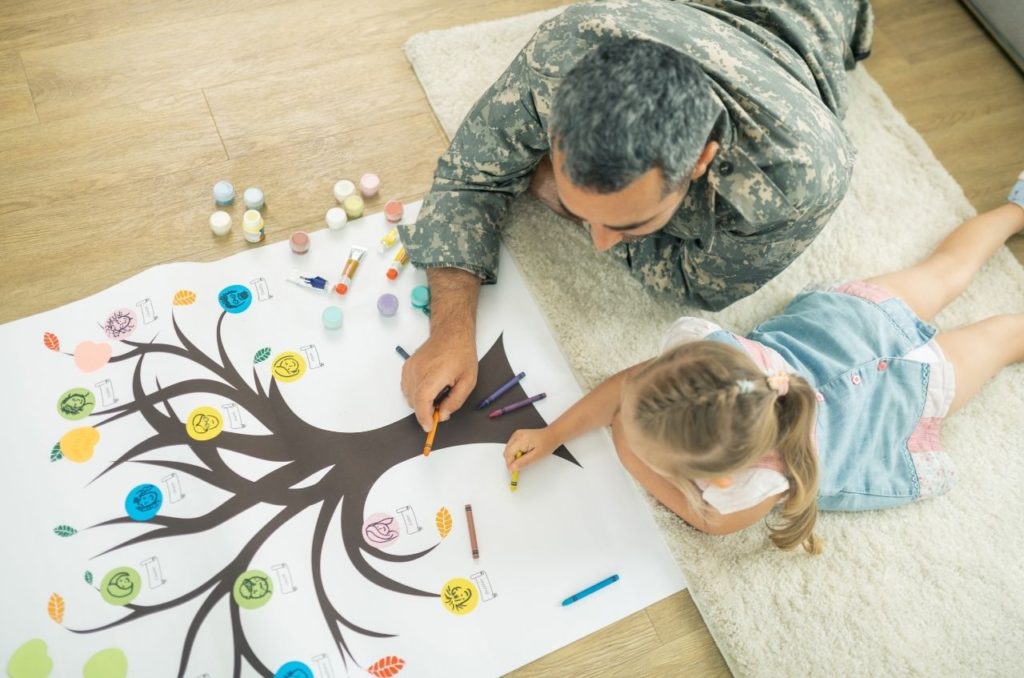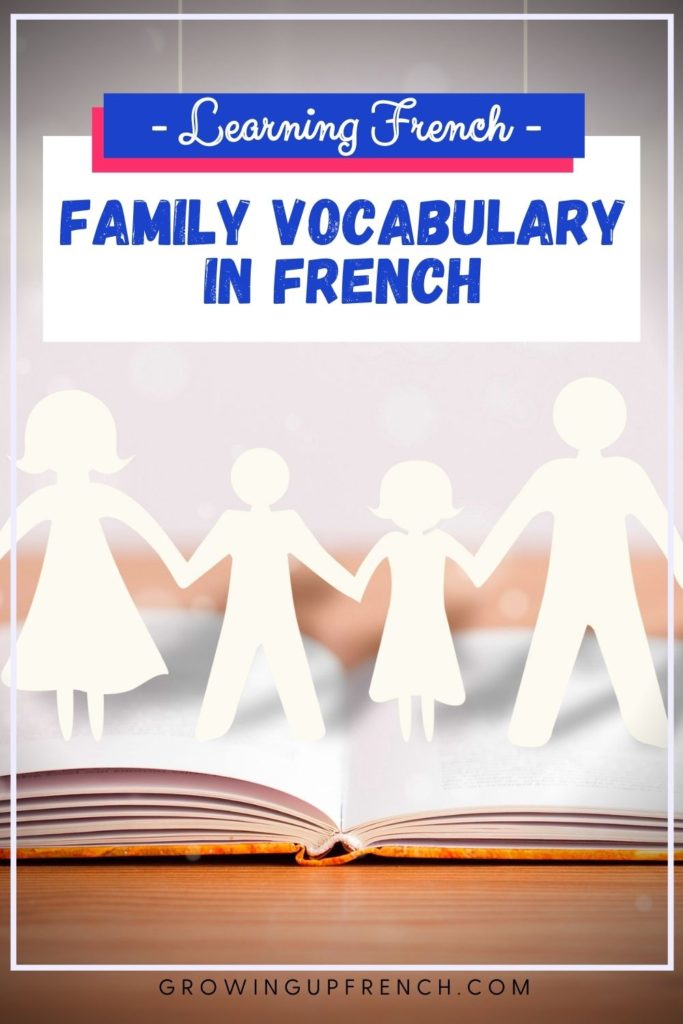Starting with the basics. Ever wonder how to say family members in French? These are the first words we teach our children to say (and then regret it…but that’s another story). Luckily for your kids (and you), it’s fairly easy to learn. Here’s a list of words to describe or introduce a family in French, from siblings to great-grandparents (because some of you are lucky enough to still have them around!).
By the way, family is famille in French! Pretty easy start, right?

I have provided you with a small audio for certain words if you are wondering how they are pronounced. Just click on the words that are in blue.
What’s their genre?
Because yes, the French language has to genre everything. It’s relatively simple though: when it relates to a girl/woman, or let’s say someone identifying as female, it will be une or la (feminine), when it’s a boy/man, or someone identifying as male, it will be un or le (masculine). When the genre differs from this general rule, the term masc or fem will be added in brackets.
Immediate family
In a nuclear family, you have people directly related all living in one household: mom, dad and a few children.
The favorite words to teach our children first, of course:
Maman – mom
Mère – mother
Papa – dad
Père – father
Enfant (both) – child
Gosse (both) – kid
Frère – brother
Soeur – sister
Baby (masc) – baby
Frères et soeurs – siblings
Sometimes the family also involves a furry baby. After an intense research based on my children’s and their classmates’ pets, here are the main ones:
Chien / Chienne – dog / female version of dog (don’t make me say it! Note that it is definitely not a bad word when used like this here).
Chat / Chatte – cat / Molly or queen ie female cat (also not a bad word in French when used in the context of pets).
Poisson rouge (masc) – goldfish
Tortue (fem) – turtle
Oiseau (masc) – bird
Extended family
So let’s branch our a bit (pun intended) in our genealogical vocabulary and see those beloved family members we love to see on Thanksgiving.
Arrière-grand-mère – great-grandmother
Arrière-grand-père – great-grandfather
Grand-mère – grand-mother
Mémé or Mamie – Granny or Grandma
Grand-père – grand-father
Pépé or Papi – Granddad or Grandpa
Oncle – uncle
Tante – aunt
Tata – auntie
Tonton – uncle (but more as a term of endearment)
(Fun pun: do you know how to say “your uncle is shaving your uncle” in French?…scroll down for the answer)
Cousin / cousine – male cousin / female cousin
Nièce / neveu – niece / nephew
Beloved in-laws
In French, they are called belle-famille, which is, in fact, also the term used for blended family. Some terms are one and the same. However, contrary to some traditions in certain American families, the in-laws in France are never called Mom or Dad by their son or daughter-in-law. Also, they are most often referred to with the “proper” you: vous to show a certain distance/respect. Can you feel the in-law family love?
Belle-mère – mother-in-law
Beau-père – father-in-law
Beau-frère – brother-in-law
Belle-soeur – sister-in-law
Gendre or Beau-fils – son-in-law
Bru or Belle-fille – daughter-in-law
Blended family
The terms for blended family (or reconstituted family if you will) is famille recomposée (also belle-famille). It is made of parents who have a family from a previous relationship and who build a new family together. The main vocabulary is:
Belle-mère – step-mother
Beau-père – step-father
Demi-soeur – half-sister
Demi-frère – half-brother
Foster family
A few basics words for a foster or adoptive family are:
Fils adoptif – adopted son
Fille adoptive – adopter daughter

Ranking in the family
Some terms are frequently used to rank the family members, mainly children.
Aîné / aînée – eldest boy / eldest daughter (first born)
Cadet / cadette – youngest boy / youngest girl (anyone following the oldest child)
Benjamin / benjamine – youngest boy / youngest girl (last born child)
Common religious relationships
Godmother – Marraine
Godfather – Parrain
Filleul / filleule – Godson / Goddaughter
Now that we have the vocabulary going, how about we figure out how to teach these to our children? I have a few games and songs that will definitely help you. You can find them right here.

PS: the answer is “Ton tonton tond ton tonton”.

